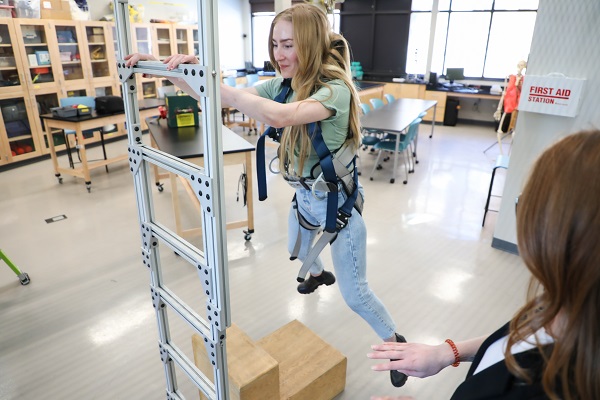Montana Tech’s Department of Safety, Health and Industrial Hygiene marks 50 years of excellence

Montana Technological University’s Department of Safety, Health and Industrial Hygiene is celebrating its 50th anniversary this fall, marking five decades of preparing students for professional roles in workplace health and safety.
The program was established in 1975 by visionary founder Floyd Bossard, who also launched Montana Tech’s environmental engineering program. Inspired by the passage of the Occupational Safety and Health Act of 1970, Bossard recognized the growing demand for highly-trained professionals to protect workers and improve conditions across industries. An M.S. in Industrial Hygiene launched in 1985. The MS Industrial Hygiene Professional Track, primarily an online program, was added in 2002.
“Thanks to Floyd’s vision, we are one of the oldest programs in the nation, and we’ve remained leaders in the field ever since,” Department Head Dr. Julie Hart said. “We want to celebrate our founders, our amazing alumni, faculty, staff, and the generations of students who have helped shape this program over the last 50 years.”
The three-day celebration begins Thursday, October 2, with an educational workshop in the Montana Tech Student Union Building. Presenters include alumni and industry leaders covering topics such as the future of occupational health and safety, technology innovation, safety in the armed forces, 3D modeling for construction, emerging hazards in industrial hygiene, and communication in the safety profession.
That evening, the Copper King Convention Center will host a gala dinner. Former department chair Julie Norman, Bossard’s daughter, will serve as master of ceremonies. The evening will feature a social hour, dinner, and recognition of the program’s founders, faculty, and alumni who have contributed to its success.
Friday, October 3, will feature a breakfast social, an advisory board meeting, student presentations, lab tours, and a lighthearted tradition — the homecoming bed races on campus, complete with lunch provided in front of the library.
The celebration continues Saturday, October 4, with a homecoming tailgate hosted by the American Society of Safety Professionals (ASSP) student club, followed by the Montana Tech football game at Alumni Coliseum.
Montana Tech’s Department of Safety, Health and Industrial Hygiene degree programs are all ABET accredited and are recognized as Qualified Academic Programs by the Board of Certified Safety Professionals. The department has long benefited from a National Institute for Occupational Safety and Health (NIOSH) training grant, which provides scholarships and supports the program’s mission to meet national workforce needs.
Hands-on learning has been a cornerstone of the curriculum since its inception. Students are required to complete internships for credit, gaining real-world experience with industry partners such as construction, mining, petroleum, manufacturing, and insurance. In addition, courses often include community-based projects and experiential learning in the department’s safety and industrial hygiene labs.
Montana Tech students are also active outside the classroom. The ASSP student club plays a key role on campus and in the profession, and students compete in events like the Safety Olympics, where Montana Tech has already earned first- and third-place finishes since joining in 2024.
The program’s impact is far-reaching. As the only OSH and industrial hygiene program in Montana, it attracts primarily students within the Northwest region and provides what Hart calls “transformational experiences” aligned with Montana Tech’s mission. Alumni have gone on to incredible safety and industrial hygiene careers across the country. The program’s 50th anniversary is as much about the future as it is about the past.
“Safety and health risks exist in every industry, and our graduates are problem solvers,” Hart said. “Our graduates are highly sought after because they bring the expertise and grit needed to identify hazards and implement solutions that keep workplaces safe across industries. The true strength of this program lies in its graduates who have become leaders in the field and who carry forward a legacy of excellence. As we celebrate 50 years with generations of program graduates, we also look ahead with pride and purpose to the next 50.”
To join in the celebration, click here.